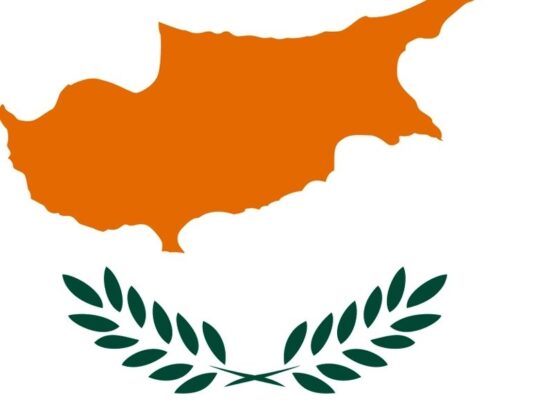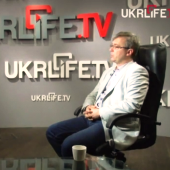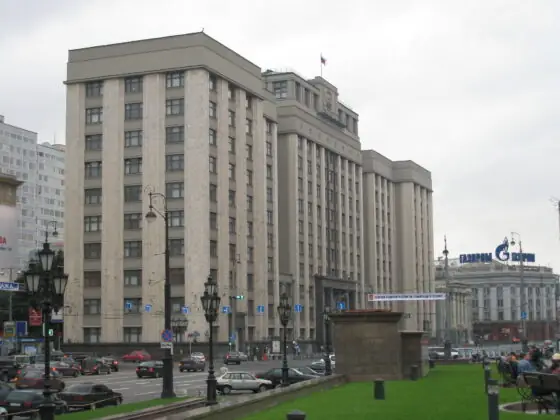The Ukrainian political party Svoboda has generated considerable discussion since the start of Ukraine’s political crisis that began in November 2013. No doubt, Svoboda has a complicated portrait. Some observers place it in the family of fringe extreme-right political parties in Europe. Proponents of Svoboda say that it is undeservedly demonized and that it represents the voice of the “common man” against a corrupt and ineffective political elite.
As it entered the mainstream political orbit, Svoboda began to clean up its act. Party leader Oleh Tyahnybok—now a presidential candidate—shed his most radical positions. In recent years, he has emerged as someone striving for acceptance in more respectable political society. Others in the party who promote extremist positions have been pushed aside or silenced. Whether we are witnessing a genuine transformation of the party or a mimicry intended to disguise its genuine sentiments remains an open question. So far, the answer seems to be a little bit of both.
Caught between a Rock and a Modern Place
Thus far, Svoboda has retained a certain niche within Ukraine’s political spectrum. While striving to become a more mainstream political party, it has been limited in how far it can evolve without alienating its core constituency. The party has had to give up its hardline positions to be accepted by Brussels and Washington (including photo ops with Western dignitaries). But it needs to maneuver carefully, as it does not have a monopoly on the “nationalist” electorate in Ukraine and faces challengers from the other side.
Svoboda represents itself as a nationalist party, but what exactly does this mean? Its foundation as a conservative party is solid, especially on issues like family values and religion. It opposes minority rights and is blatantly homophobic, the latter outlook unfortunately reflecting attitudes that are prevalent across Ukrainian society. This particular stance should be perceived not only as a matter of principle for Svoboda, therefore, but also as an example of opportunistic populist politicking. Another party stance that receives less popular support is its call to allow citizens the right to own firearms.
Svoboda is often undeservedly criticized as a xenophobic party. It does not stand for the supremacy of ethnic Ukrainians and does not suggest depriving non-Ukrainians of their political, social, economic, or cultural rights. Nor does it call for cutting immigration to Ukraine entirely, although it supports more effective immigration controls. Rather, Svoboda seeks to reinforce the national dignity of Ukrainians and enhance their ethnic pride.
In many ways, Svoboda’s stance is defensive and reactionary—during the twenty-plus years of Ukraine’s independence, the state has not properly protected Ukrainian culture, language, heritage, and traditions. This is especially so in the country’s eastern and southern regions where everything Ukrainian has faced constant onslaught, accompanied by a stream of bogus claims of forceful Ukrainization. Pro-Ukrainian elements in eastern and southern regions have been isolated, ostracized, and mocked. They have not received much support from either central authorities in Kyiv or the more nationalist western regions.
Economics
Svoboda does not have a liberal or progressive agenda. This is clear from the party’s economic platform, which is essentially in opposition to the market economy. Svoboda refuses to accept that a strong market economy can act as a solid foundation for the protection of national interests. In a paradox of Ukrainian political life, Svoboda ideologues have come together with their archrivals, the Communists, in decrying the market. That said, such a stance again reflects the party’s populism. Among many ordinary Ukrainians, the notion of a market economy is unpopular and discredited. People tend to understand the market through the prism of Ukraine’s present-day economy, with its corruption, raider attacks, control by oligarchic clans, and lack of transparency.
Foreign Policy
Svoboda’s foreign policy and national security platform is the least developed aspect of its agenda. This reflects a lack of experts within its party ranks and, again, its populism. Its stated foreign policy objectives range from being outright unrealistic and harmful (such as the renuclearization of Ukraine) to confusing (demanding that NATO create favorable conditions for Ukraine’s membership in the Alliance). A few elements are a bit more sensible, like denouncing the (now-defunct) Kharkiv accords that allowed Russia to retain its Black Sea Fleet in exchange for ostensibly lower gas prices. Overall, when it comes to foreign policy, Svoboda’s ideologues are on uncertain ground.
Euromaidan and the Party’s Evolution
Svoboda needs to continue working to suppress or, better yet, eradicate the anti-Semitic mood of some of its party members. The search for national enemies through an ethnic prism must stop once and for all. To put it differently, the fight against these enemies—corrupt politicians, policemen, judges, and others—should continue irrespective of and without reference to ethnic origin, which is entirely irrelevant. There have been many ethnic Ukrainian corrupt officials, including those who gave the order to shoot and kill Ukrainian patriots in Kyiv in February 2014. Moreover, many of those killed were not of Ukrainian origin but they still joined the struggle for freedom. The Euromaidan movement presented many lessons in tolerance for everyone in Ukraine, including Svoboda.
There is little doubt that Svoboda earned itself political capital through the earlier phase of the crisis—during the events of late November and early December 2013. Other opposition forces and figures failed to stand out and often came across as timid and indecisive. Svoboda activists provided the main source of energy, calling for radical changes to the nation’s rotten political system. They reinforced their image as the party of rank-and-file defenders of the common folk standing against oligarchs and corrupt politicians. They managed to maintain their reputation as a group that did “not sell out.”
Out of the trio of Euromaidan leaders, Tyahnybok emerged as the most energetic and consistent (Fatherland’s Arseniy Yatseniuk lacked charisma and UDAR’s Vitaly Klitschko was low on political experience). That period of the Euromaidan afforded Svoboda the opportunity to improve their results in the next parliamentary and local elections, including potential to gain some support in the eastern and southern regions of the country.
The situation changed for Svoboda after the climactic events of February 20-21. They simply lost momentum. They were successful in calling people to the streets, but once the government fell they were unable to provide fresh or productive ideas. They lacked any tactical or strategic plan for what to do next. This led to other segments within the broad Euromaidan camp taking the initiative. A variety of forces have been active, ranging from more liberal-leaning groups like the all-Ukrainian association “Maidan” to the radical nationalists of the “Right Sector.”
In particular, the radicalization of the Euromaidan took Tyahnybok, as well as the leaders of Fatherland and UDAR, by surprise. In denouncing the radicals and their tactics, they stood contrary to the momentary mood of the Maidan. Even while trying to ride the radical protest wave, they cut a deal with Victor Yanukovych, largely due to pressure from European mediators. This was seen as anything but a victory for the Euromaidan. In effect, they were outpaced by the protest agenda. Their deal would have been enough to satisfy the Euromaidan prior to its radicalization, but it became a case of “too little, too late.” To this day, all three parties live under the negative shadow of the scores of protestors massacred by government sniper fire (including members of Svoboda).
Conclusions
Svoboda gained distinctive support with its leadership, decisiveness, and principled stance during the first stage of the Euromaidan revolution. However, by revealing an inability to lead during the second segment of the crisis, distancing themselves from the radicals, and signing a deal with Yanukovych on February 21 (at the time of the worst atrocities), Svoboda began to lose out.
Ukraine’s current government is trying to handle the deepest political and economic crisis in the country’s history. Popular expectations of swift change have not been met. Instead of following through on much needed reforms, Svoboda and the rest of those in government have become preoccupied with politics in Kyiv, drowning themselves in non-stop internal bickering and casting of blame.
In recent months, Svoboda was entangled in backroom dealings with other parties in the post-Euromaidan parliament as they all raced for influential positions. This was done in much the same way as before, in the nontransparent style of politics that the protesters strongly decried. Despite a call for lustration, which is in Svoboda’s program and is widely shared by the Ukrainian populace, the party has been involved in deals with numerous members of the old elite.
Svoboda members have also engaged in some rightist posturing and intimidation tactics. What once seemed somewhat acceptable for them while in opposition is now obviously out of place. Some Svoboda parliamentarians physically intimidated the head of the National Television Company of Ukraine (First National TV Channel), which was appalling and widely condemned. Equally counter-productive were provocative comments by notorious Svoboda member Iryna Farion on the delicate issue of language rights.
At minimum, such episodes show that Svoboda is not capable of pursuing responsible policies. At maximum, they feed the Russian propaganda that Svoboda members are provocateurs. These and many other factors have shaped a rather unfavorable situation for Svoboda with regard to the upcoming elections. What happens to Svoboda in the nearest future depends on a number of unknowns. What new configuration will emerge in the Ukrainian parliament and government after presidential elections? How coordinated and effective will that government be? What sort of relationship will emerge between new authorities and civil society? The list goes on.
Moreover, as we know, Svoboda does not enjoy a monopoly on Ukrainian nationalism. Other political and social movements, including the Right Sector and others, will be forces to reckon with, especially if they decide to move into mainstream politics. As ground is lost in the western regions and none found elsewhere, Ukrainian politics remains dynamic, but Svoboda is finding itself in a downward cycle.
[View PDF]










